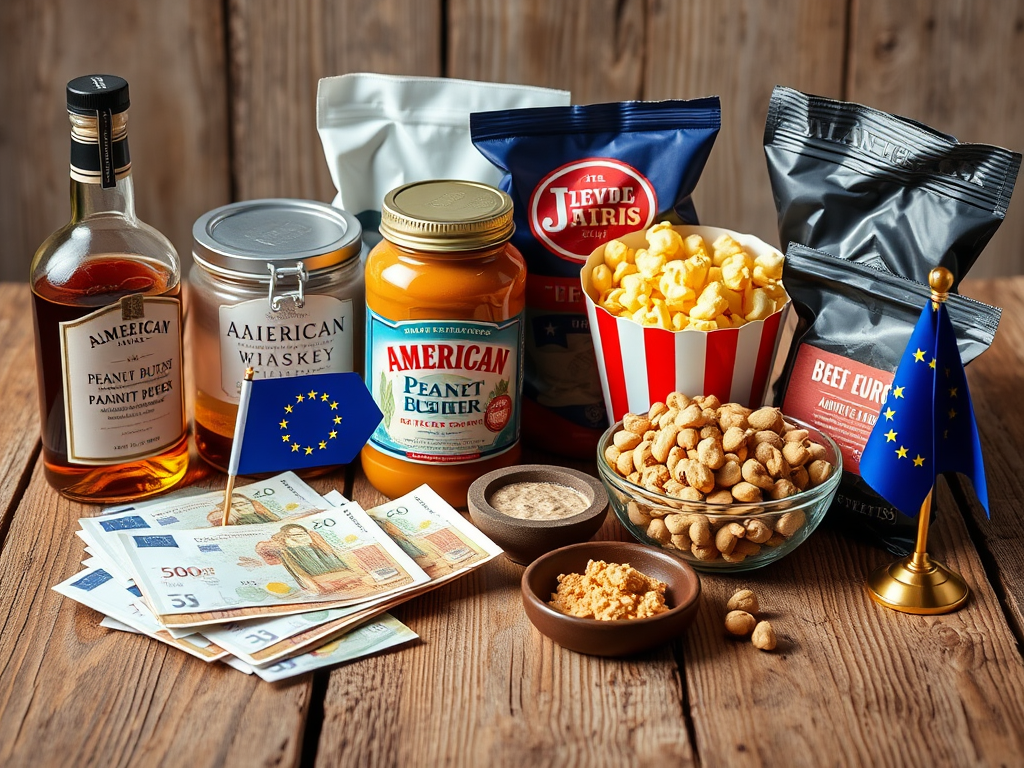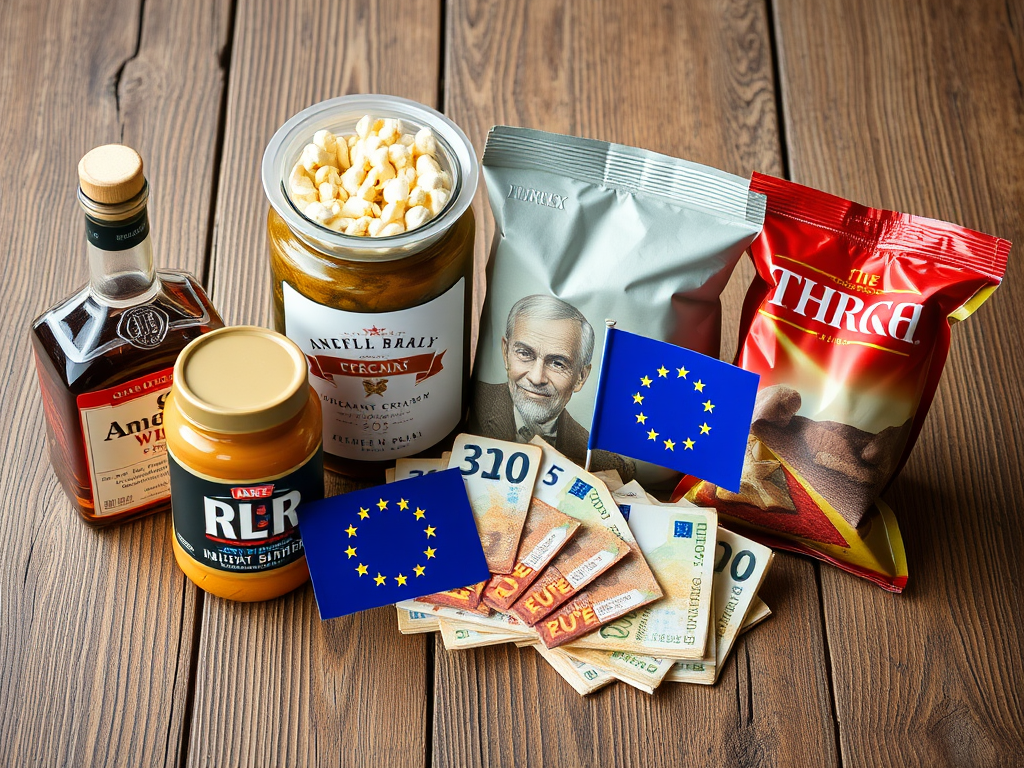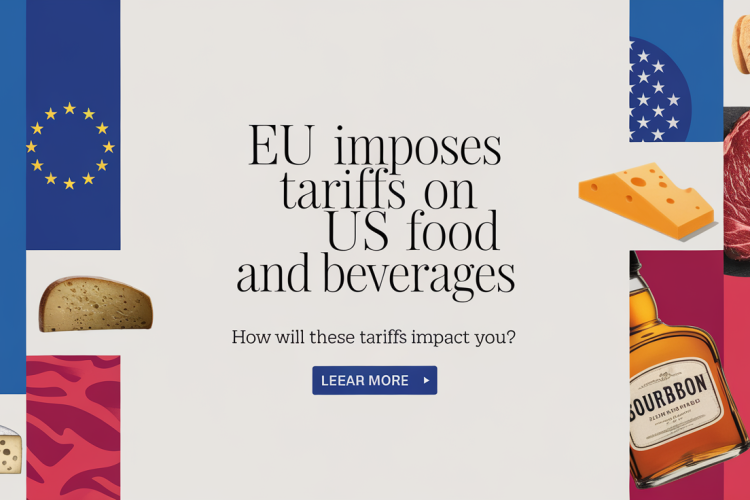The European Union has imposed retaliatory tariffs on $23 billion worth of US goods, including various food and beverages, in response to the US tariffs on steel and aluminum imports. The EU’s decision, announced by EU Commission President Ursula von der Leyen, criticizes the US action as “unjustified trade restrictions.” The tariffs will be implemented in two phases, starting April 1, 2025, and fully in place by April 15, 2025. The EU emphasizes its preference for negotiated outcomes, offering “zero-for-zero tariffs for industrial goods.”
Affected US Food and Beverage Products
The EU’s retaliatory tariffs target a wide range of US food and beverage products, including meat, seafood, dairy, confectionery, almonds, orange juice, poultry, soybeans, and tree nuts. Beverages such as beer, wine, gin, whiskey (including bourbon), rum, tequila, and non-alcoholic milk-based drinks are also affected. Key US exports like beef, corn, pork, wheat, and whiskey face significant export challenges. For more information on the impact of tariffs on US goods, visit this page.

Timeline of Tariff Implementation
The US imposed a 25% tariff on $28 billion worth of global steel and aluminum imports on March 12, 2025. In response, the EU began implementing its retaliatory tariffs on April 1, 2025, with the first phase. The EU member states approved the tariffs on April 9, 2025, and the full implementation of EU tariffs was completed by April 15, 2025. The Trump administration announced sweeping tariffs on April 2, 2025, which led to China increasing tariffs on US imports to 84%. For more information on the US dairy industry’s challenges with tariffs, check out this article.
Economic Impact on US Industry and Consumers
The US agricultural and beverage sectors face significant export difficulties due to the EU’s retaliatory tariffs. The impact is described as “the largest peacetime consumer tax hike in US history.” US consumers are expected to see rising grocery prices, following high food and beverage inflation in 2022-2023. Key affected industries include beef, corn, dairy, pork, soybeans, tree nuts, wheat, wine, and whiskey producers. For businesses looking to submit a dessert recipe or a favorite local dessert shop, consider visiting our recipe submission page or our business directory.
EU’s Protective Measures and Diplomatic Stance
The EU has tightened steel safeguard measures, effective April 1, 2025, with additional changes slated for July 1, 2025. The EU has also established an “Import Surveillance Task Force” to gather evidence and develop policy responses. The EU states that the tariffs “can be suspended at any time, should the US agree to a fair and balanced negotiated outcome.” Diplomatic statements highlight the EU’s readiness to negotiate and preference for mutually beneficial solutions. For more information on Canada’s challenges to US tariffs at the WTO, visit this page.

US Industry’s Response to Tariffs
The US food industry is exploring options for tariff exemptions to mitigate the impact of the EU’s retaliatory tariffs. For instance, the US baking industry is seeking relief from the tariffs, which could significantly affect their exports. More information on the US baking industry’s efforts can be found here. Additionally, US food producers are looking into tariff exemptions to minimize losses.



